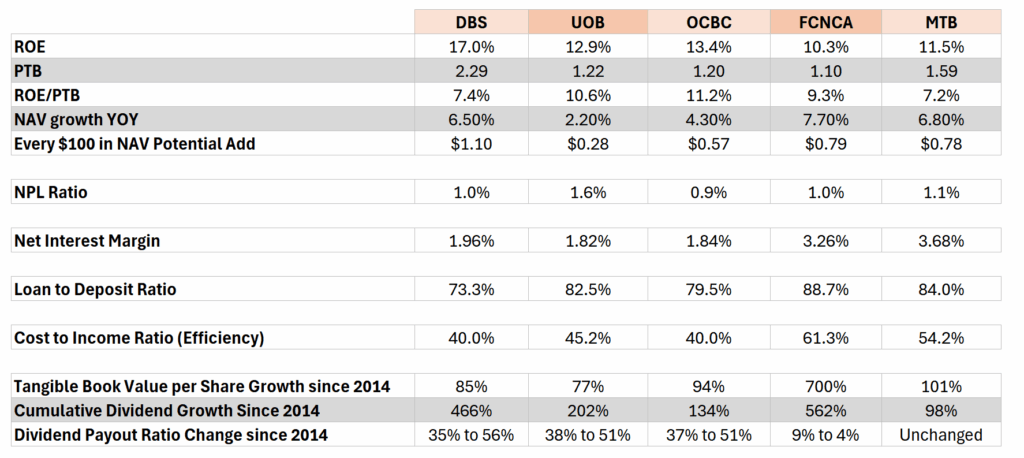The Shocking Seller Financing Mistake That Could Cost You Everything—Avoid This Rookie Trap at All Costs!
Ever found yourself tangled in a real estate deal that feels more like a horror story than a business opportunity? If you’re thinking about selling a rental property—which, honestly, most investors should be considering—you’re gonna want to hear this. Picture this: your buyer keeps pushing back the closing date with one excuse after another, the winter slowdown creeping in, and you’re stuck wondering, “Do I hold on or cut my losses?” Then there’s the nightmare scenario straight out of an investor’s worst dream—a seller financing deal spiraling out of control where the buyer stops payments, rents out your property behind your back, and shockingly moves into your basement, squatting in your own darn house. What would you do? And just to cool things off a bit, we dive into the surprisingly hot debate: should landlords include pesky appliances like washers and dryers in rentals? Spoiler alert: Ashley’s take might shake up what you thought you knew. Whether you’re buying, selling, or managing rentals, these twisted tales and practical pointers are gonna arm you with wisdom only a seasoned investor would dare share. Ready to dive in and avoid these pitfalls? LEARN MORE
If you ever plan on selling a rental property (which you probably should), listen to this Rookie Reply.
Halloween is over, but we’ve got two real estate investing stories that would make any investor’s skin crawl. First, a buyer is delaying closing longer and longer, coming up with excuses, lying to the seller, and wants more time. But…they’re your only offer, and it’s getting close to the winter slow season. What do you do?
Next, a seller financing deal gone wrong (in every single way). Your buyer stops paying you, starts renting your house out, takes the money, and, get this, moves into your basement…now they’re squatting. What do you do to get them out and finally reclaim your property?
Lastly, we’re ending on a lighter note. Should landlords ever include appliances like washers and dryers in their rentals? Ashley’s answer goes against the grain, but her reasoning is rock solid!
Looking to invest? Need answers? Ask your question here!
Click here to listen on Apple Podcasts.
Listen to the Podcast Here
Read the Transcript Here
Ashley:
What happens if you go to sell a property but the buyer backs out? Or what if you do a seller finance deal and the buyer stops making payments?
Tony:
Today we’re breaking down three questions. Every rookie investor needs to hear from selling a property to renting it out.
Ashley:
This is the Real Estate Rookie podcast. I’m Ashley Kehr.
Tony:
And I’m Tony j Robinson. And with that, let’s get into today’s first question. So today’s first question comes from Michael in the BP forums, and Michael says, buyer default after extension enforce our EMD or keep waiting. So Michael says, I listed a property recently that got about 20 showings in the first week, but only one offer. It went under contract with a relatively small non-refundable deposit In a short closing timeline, it’s been 55 days. It was supposed to be 25, but now we’re on day 55 and counting. The buyer missed the original close date, asked for an extension, and I agreed the new closing date has now also passed with no closing, but the buyer still only has a conditional loan approval, and I later found out they withheld a material fact that impacted their financing. They’re offering just a token increase to the deposit, and my realtor is encouraging me to give them more time since there weren’t multiple offers.
So hereby concerns first, the contract has technically expired after the extension. Second, the deposit is small and currently second escrow, third buyer hasn’t been transparent about their situation. Fourth, I don’t want to lose more time off market, but I also know the layout limits the buyer pool. And then fifth, I could in theory, always draft a retroactive extension if they really got their financing together later. So the question is, if you were in my shoes, would you enforce the contract and relist now or grant one final short extension, but only with a substantial non-refundable deposit? That’s a great question. We’ve actually never really tackled it from the seller’s side, but as real estate investors, sometimes we do sell real estate as well, right? We’re not just always buying. I guess what’s your initial, I guess before we even talk about your take, Ashley, just what should we be considering before we make that decision?
Ashley:
Today’s market conditions. I think that if you would’ve asked me two years ago, I’d say Move on to the next buyer. Don’t waste time with this person. But Tony and I both have properties that have sat on market for a very long time, and you might not find that other buyer right away, and you might sit longer than you would if you give them an extension or if you give the extension and it still falls out, I feel like it’s probably going to impact you the same, even if you wait a little bit longer. Also, seasonality. So for example, in Buffalo, New York, we’re getting into the winter months. We’re definitely a slowdown too. So maybe if there’s a huge slowdown in your market too, people aren’t moving as much in winter looking to buy houses that maybe it is, you’re in more of a rush to get it offloaded or maybe you are going to do the extension and then if it doesn’t work out, take it off market and relist it back in the springtime when hopefully the market does see a little bit of a boost as it usually does. So that would be my first thinking point as to what are the market conditions.
Tony:
I think the other thing to consider too is how badly do you want to sell? What is your motivation for selling? Did you list this property just because you’re like, eh, I’ll test the market and if it sells great and if it doesn’t, no harm, no foul. Or is it like I’ve got a hard money note that’s due in seven days and if I don’t pay this thing, then I’ve got to go back and renegotiate and there’s all these additional fees. What is your motivation for selling here and how much pressure do you have to actually disposition this asset? Because obviously the less pressure you have, the more you can hold out on actually getting someone who might be able to get it to the closing table. But if there’s a lot of pressure there, then maybe you’ve got to move more quickly and go with a more sure bet.
So I think that’s one thing to consider. The other thing I would try and really understand is, okay, realistically what are the chances of this buyer closing? What was the original reason that the closing has to be extended? They kind of mentioned some issues around financing. Have those issues been resolved or is it still an open item where they’re like, maybe we’ve got this done, but if they’re like, Hey, no, we’ve got it done. We’re just waiting on this last thing. We need A, B, and C, but we feel pretty good about getting there, then maybe that changes the decision making process as well. But those are the two big things I would look at your personal situation, what’s revenue to sell? How realistic is it now that the buyer has solved these issues and they can actually get to the closing table, but I think based on what’s in front of us, Ashley, I would probably give this buyer one more chance because if he said 20 showings with one offer, it is not a terrible ratio, but it’s also not great.
It means you need another 20 showings, maybe get one more offer, but maybe you don’t even get another one, right? You said the layout is maybe a potential issue here. So it’s like if you re-list now people kind of smell blood in the water, right? It’s like, Hey, we saw this property go under contract. It was under contract for a long time, then it fell out of contract. People won’t even know why it fell out of contract. They’ll just think that something was wrong with the property, right? Everyone’s initial take’s like, oh, well this buyer didn’t want it, so it must mean that’s why it’s back on the market. So now let me low ball you with something else.
Ashley:
It’s got that stain on it,
Tony:
It’s got the stain on it, right? There’s this stigma around properties that have been re-listed. So I think there’s some challenges there with going back onto the market, but I do like the idea of increasing the non-refundable deposit because if this buyer is serious, ask them to majorly up whatever their non-refundable deposit is
Ashley:
And if they have confidence that it’s going to go through and if they won’t up it, then that probably shows that they’re not even certain. But also I would try to get face or not face to face, but think about the chain of people that you play telephone with real estate agents. So what is the actual issue? If there is a way for you to contact email or something the buyer directly and say, Hey, what’s the issue? I’d love to work out something to get this to work out. How can I help and see if maybe they’ll say, oh, well my financing is caught up because of this or that, and it’s like they can show you, I just need a little bit more time, but it’s going to work out. Or maybe it’s something else that you actually could help with or whatever to move it along.
Or maybe you could offer to change the terms of the contract in some way. But I think that’s actually understanding Tony said why it isn’t closing. What is the actual underlying issue? Okay, we’re going to take a short break, but coming up, what happens if you offer seller financing? You want to make the interest instead of the bank, but the buyer stops paying. We will hear this investor’s horror story when we come back right after this quick break. Hey guys, it’s Ashley. I wanted to pop in here real quick to tell you that managing rentals shouldn’t be stressful. That’s why landlords love rent. Ready. Get your rent in your account just two days faster cashflow, less waiting. Need to message a tenant chat instantly in app. No more lost emails or texts. Plus schedule maintenance repairs with just a few taps. No more phone tag.
Ready to simplify your rentals. Get six months of rent ready for just $1 using promo code BP 2025. Sign up at the link in the bio because new landlords are loving rent ready? Okay, welcome back. So this question comes from the BiggerPockets forums. I’m currently in the middle of a serious situation with a seller finance deal. Gone completely sideways, the buyer stopped paying secretly turned the property into an Airbnb without my knowledge and eventually defaulted, leaving me with a huge unpaid balance, property damage and a legal mess trying to remove them. Even worse, the family renting the home through Airbnb was completely unaware and now caught in the middle. I’ve signed a legal lease with them to protect their housing, but I’m still stuck pursuing the original buyers for breach of contract trespassing and damages. At this point, I’ve paid a $5,000 legal retainer. The buyers owe over 18,000 in missed payments.
Damages include a kicked in door, scratched interior doors from pets, damaged siding and HVAC tampering, and now they’ve taken up residency in the basement when the original buyers tried to call the cops on the ones living in the property due to not receiving payments from Airbnb anymore. So they’re squatting in the basement even though they have never there. I’m moving forward with legal action, but I’m sharing here to ask, has anyone dealt with something similar under a contract for deed? Any advice on how different damages and force against unauthorized occupancy? How did your legal process play out if you couldn’t recover funds from the other party? So then it goes on to say, this sounds like a nightmare, and it definitely does. I think the first thing I want to clarify here is to talks about the squatters in the basement and talks about original buyers.
Tony:
So it sounds like the folks who bought this on the seller finance note have moved into the basement and they’re squatting there because the Airbnb family realized what was going on and instead of paying Airbnb, who would then pay this guy who wasn’t paying the mortgage payments, they’re now just paying the landlord directly for the Airbnb that they’re staying in. So the buyers got mad and basically are now squatting and the property as a middle finger to both of them. This is a crazy situation.
Ashley:
What is that guy’s name that made national news where he was like ex-military and you could hire him in his flash or something really cool names. You could hire him and his friends and they would move into the property armed and just be as annoying as possible to make this Connors move out. I’m sure if you Google it,
Tony:
I mean, but there’s two separate issues here. There’s the squatting issue and there’s the seller finance, not even seller finance. This is a sub two deal, and let’s just quickly define those differences. Seller financing in the general sense is I own a property free and clear and I’m going to sell it for Ashley and I’m going to finance those payments for Ashley. So instead of Ashley going out to Bank of America or Chase and getting a mortgage to pay, so instead of 20% down and 80% being funded by Bank of America, Ashley’s going to give me the 20% down payment and then I’m going to let her spread the other 80% out in payments over some predetermined period of time. That’s seller financing. Subject two is when same property, but I’ve got a mortgage on it and I’m going to let Ashley buy it subject to the existing mortgage.
So what that means is Ashley comes in, she still maybe gives me a down payment of some sort, but then she takes over payments on the loan, my name, everything that I did still stays in place, but now Ashley is making those payments on my behalf and I am able to kind of step away from the property. Now I still have the debt tied to it and depending on how they set this deal up, maybe my name is or is not on title, but that’s the difference between sub two and seller finance. So financing means there’s no debt, traditional debt, and sub two means the original debt is still in place.
Ashley:
So with seller financing, let’s say I sold a property to Tony and I decided to seller finance, he’s making payments to me, he stops making the property is free and clear. So I’m not that worried about a ton of holding costs. I have to go through the foreclosure process or I’ve seen investors negotiate and basically do a cash for keys or just sign the deed back over to me. We’ll skip the foreclosure thing. Here’s five grand or something to do that. But you go through the foreclosure process, but sub two, you are not the owner of the property, but the debt is still in your name. So Tony stops making payments to my lender. The lender is coming after me, not Tony for those payments. So I have to, in the meantime, keep paying my payments so my credit doesn’t get destroyed and go ahead and start the costly foreclosure process. Well, actually no, you can’t even foreclose on them because they don’t own you any debt. So go after them for legal action. But I don’t even know where to start.
Tony:
I wouldn’t either. And I think that’s the tricky part of this is that you’re fighting two things, right? There’s the money owed for the sub two transaction and then there’s the squatting issue as well. I would probably go after the, but actually, can they even squat? I don’t even know if it’s squatting because their name is on title now. I mean, man, it is a really tricky situation. I think the first thing that I would do, and it sounds like you’ve already started this, right? 5K in legal retaining or 5K to retain an attorney. I don’t even know if I could do anything else or offer any advice above and beyond that because it’s like what legal standing do you have? I would assume, I would hope that there was a really rock solid contract in place when this transaction happened, and they mentioned contract for deed. So hopefully whatever that is gives you the legal protection to actually go after these folks. But either way, it sounds like it’s going to be a long and lengthy battle with no clear cut action unless you do it Ashe, where it’s like, Hey, instead of me paying this attorney $20,000 to solve all this, lemme just pay you person who I’m not super fond of right now. Let me just pay you 20 K and let’s be done with this. Sign everything back over to me, move out and be done. That might be the best option.
Ashley:
Another thing that I would be fearful of is, so he says he’s signed a legal lease with the tenants that are in there, but is it actually a legal lease because he has no right to the property. So at any time the people that actually own the property could say that’s not so technically the Airbnb people could be squatting and the owners of the property could take legal action against them.
Tony:
Very true. But again, we don’t know the details of the contract, so maybe title hasn’t shifted yet. And I think if it hasn’t, then that obviously changes things a ton because now you still have legal standing as the owner
Ashley:
To go through and do an eviction on them,
Tony:
An eviction. But if you’re just a lien holder, I’ve got a mortgage with Penny Mac, penny Mac can’t sign a lease for my properties and execute those things, only I can. So there’s a lot of nuance here. And cash for keys, getting an attorney, those are the really only paths that I’m aware of that would be beneficial here.
Ashley:
Basically what I feel like if for sub two, it’s basically me co-signing for somebody. So think about you want to go and buy a car when you’re young and the bank says you have no credit, you got to get a co-signer. So grandma’s like, oh, don’t worry, sweetie, for you and grandma, and then you stop making the payments. Grandma the only one on title of the car, grandma can’t take your car away, but she still has to make the payments because she is liable in that sense. So basically when you do sub two to someone, unless there’s a pace morbid way that I’m sure he has this all figured out, maybe this question should go to pace. Who’s the expert in sub two as to what you do? On the other side of it, I think we hear a lot of stories about people buying houses using sub two as the strategy, but very rarely am I hearing in the investing world where you sell a property sub two as an investor. So I don’t have a ton of experience in this as to what would happen.
Tony:
And honestly I feel like this is becoming something that I’m hearing more of though where some of these sub two deals are going sideways for the sellers because I mean, depending on the situation, maybe these guys got into the deal with no money out of pocket, they’ve got no debt in their own name, like the motivation for them to stick with the deal if things go sideways is very low because they’ve got nothing on the line when you talk about skin in the game, they’ve essentially got none. And unless they’re just a person of high integrity, which just seems like these people are not, it becomes I think a lot easier for them to walk away and put the sellers in a pretty sticky situation. So man, it’s a rough one.
Ashley:
And a big thing I have seen in foreign posts and on social media is people say asked to do sub two because there’s people that are in a position where they have no other choice and I never see anything or I’ve never been educated about protections for that person. And I know in sub two you’re supposed to do things through a trust or things like that. And I don’t know if that protects the seller, but usually it’s like the seller’s backed in a corner. They have no other choice in their life to do something with this property. They’re underwater or whatever may be happening, they can’t sell it and you’re coming in and saving them. But what happens if you can’t make the payments anymore? What happens to them? Yeah,
Tony:
Tricky, tricky. Not often ash. And I get a question where we’re like, man, this just sucks. But I think this might be one of those situations where unfortunately not a whole heck of a lot we can do. Alright guys, we’re going to jump into our last question in just a moment, but we’re going to take a quick break first and while we’re gone, if you haven’t yet subscribed to the Real Estate Rookie YouTube channel, be sure to do that. You can find us at realestate Rookie and we’ll be back with more right after this. Alright, let’s jump back into our final question. And the final question today comes from Grant. And Grant says I’m renting an apartment in a complex that has a washer and dryer normally installed in each unit, but this unit I’m purchasing does not have one. So there’s no washer and dryer. I know it’s one of those appliances that breaks down frequently. Should I install one or have the tenants pay for one and require them to have professional installation? So pretty straightforward question here from Grant. Should you or should you not include some of whether it’s washer and dryer, maybe any of the other appliances? Should you or should you not? Ash, you are our resident property management queen for all things long-term rental. So let me ask you, in your portfolio today, are you including or excluding washers and dryers?
Ashley:
First of all, I only pick questions like this to hear you comment that just
So I can hype you up, that’s what we’re here for. So it depends on your market. So first of all, pull comparable apartments, properties, what’s being offered? So if you ran your numbers based on other properties in the area getting $1,200 per month, is that based on them having appliances included? Because if you’re going to charge 1200 and they have appliances and you don’t, it’s going to be way harder to fill that unit because you’re actually not comparable to the other ones at that price. So see what’s in your market. And also I no longer do, if I supplied it a long time ago and they’re still running, I keep them there. Or if someone has left one there, I will say, this is somebody left this here, we are not responsible for it, it’s provided and my put right into the lease. We do not perform maintenance on it, but there’s just very limited, especially where I am out in the rural area, there is one vendor that works on the appliances that is good, that’s trustworthy, that has taken care of us.
We’ve had other random people that don’t show up or things like that. But I think that’s one big reason too is do you have a bunch of people that you can actually call vendors to make these repairs and maintenance? Because appliances are one of the harder things that I have found to actually get people in to work on them. Usually not your regular handyman that knows how to fix the Samsung TV that has all the, or Samsung Fridge has all these electronics tied to it to get it going. So I think looking at that as to what vendors are in the area. If you buy a brand new one, what kind of warranty comes with it and what is the service like? I usually don’t like warranties because they don’t seem to care as much as getting things done in a timely manner because you’re already paying them for it through the warranty and it’s not like they have to try to get your repeat business because you’re under the warranty and you have to call them.
But so I don’t like that as much. But around here we have an Orville’s, which is a bigger appliance place and they do have a service side to them, which we’ve used a couple times. But also knowing what brands of appliances you have, our main vendor only works on certain brands of appliances, so we make sure if we are replacing an appliance or supplying one, we are only buying the brand that they actually work on too. But I just think there’s so many issues and appliances do not last as long as they used to. When I bought the house that I’m living in right now, our live and flip, the people left the washer and dryer here, I was ecstatic. It is an old Maytag top loader washer and then the dryer. And this thing is probably 15 years old at least, but it runs better than any washer I’ve ever had in my life. And once I leave this house, this live and flip is done, I am taking that thing with me. That new owner is not getting it part of the deal.
Tony:
You make a lot of really good points. Ashton, I think it is very much dependent on market where I’m at in SoCal, the apartment complex I lived in before we got our primary residence, it came with everything. It came with washer, dryer, the range, microwave, fridge. We had all of our appliances and if anything went wrong they would take care of that. But that was also common in this area. They wouldn’t have been able to charge as much or wouldn’t have been comparable had they not offered those things. But I do think that if you do opt to include those things in your rental, just be prepared that sometimes instead of servicing them, you just have to replace them altogether. And here’s what I mean by that. You talk about warranty. This just happened to us maybe two weeks ago at one of our short-term rentals where a guest was there, fridge goes out and we just bought the fridge within, I dunno however recent it was still under warranty, but the warranty, the person can’t even get out to check it for a week.
So think we can’t not have a fridge at an Airbnb for a week. So we had to buy a new fridge, ship it to the property or have our handyman pick it up. Then the warranty guy finally came and then we had to try and return the fridge that we had bought for that week back to Home Depot. So it’s a pain. So sometimes you just have to jump through those hoops if you do opt to include it. But to Ash’s point, if it’s not super common, maybe you can avoid that headache and just avoid it all together.
Ashley:
And two, it’s not like you have to include all appliances. If there is a built-in dishwasher space, we will include the built-in dishwasher. That’s not something we’re going to not, you show the apartment, there’s a big hole where the dishwasher goes, oh, if you want a disher washer, go ahead. One other thing we do run into of if we do require them to hook up their own is if there’s a gas hookup, a lot of times they will ask my maintenance person if they will hook it up for them if they’re bringing their own gas stove or their gas dryer and we always say no because we don’t want the liability of not hooking it up correctly and all of a sudden there’s a gas leak and it comes back on us. So we always stay away from hooking up appliances that the tenants bring into the property or maybe it’s something that’s malfunctioning with their appliance that they got, they bought off Facebook marketplace, but I don’t want to be the one that was responsible because we installed it for them. So that’s one thing too is that we don’t supply that at all if they ask for it.
Tony:
I just want to share one quick anecdote before we wrap Ash. My dad and my stepmom, they were looking for a new rental and they walked this home and it was new construction just been built. But as they were describing this story to me, they were like, it seems like whoever built this ran out of money as they were finishing this off. And they said that they walked up to the property from the sidewalk and there was turf, but they were like, it looked like they had installed the turf themself because there was wrinkles in the turf. You could see visible wrinkles and you could see the siting and they’re like, we went inside and there was the bathroom downstairs. Instead of there being a vanity, there were these small three circular mirrors where they almost looked like decorative mirrors, but if you stood in front of them, my dad, he is like as tall as I am, he is like, I could only see my belly button looking in the mirrors. And then the reason I bring this up is because we’re talking about amenities and they were in the master bedroom and they go from the master bedroom into the closet and there were no rods in the closet. And my dad and my stepmom were like, well, where are we supposed to hang our clothes? Where are the rods? And the agent who was showing them the place said, oh, if you want those, it’ll be extra on your rent.
Ashley:
Oh my God,
Tony:
I had never heard that in my life. It’s like I got to pay extra to hang my clothes up. So anyway, guys,
Ashley:
Okay, next time you got to find out where that is because next time I come visit, we’re going to go and tour the property and make content out of those lines is I do remember apartment complex near me where it was brand new construction and the way they built it was closets with a washer and dryer and they would lock the door to the closet unless you paid it was like 50 or $75 extra a month and they would unlock it and you got to use the washer and dryer. So they did that too. Yeah,
Tony:
That sounds so silly to me. If I’m living there and I’m not paying for the washer and dryer, but I know what’s behind that door, I’m opening that lock, right? Just drill it out and then change the thing before you move out. When you go to section, put it in or don’t put it in, but don’t put it and lock it in my own house. You’re not supposed to. Don’t take advice, haven’t scam landlords on the show. It’s more so a lesson to the landlord. That’s a silly way to upsell your clients. Upsell your tenants.
Ashley:
Well, thank you guys so much for watching today. I’m Ashley Hughes, Tony, and we’ll see you guys next time.
Help Us Out!
Help us reach new listeners on iTunes by leaving us a rating and review! It takes just 30 seconds and instructions can be found here. Thanks! We really appreciate it!
In This Episode We Cover:
- How to force a flaky buyer to either close or stop wasting your time
- Seller financing vs. subject to, and the big difference when you’re the seller
- How to get a squatter out of your property for good
- The appliances you should (and should not) include in your rental property
- And So Much More!
Links from the Show
Interested in learning more about today’s sponsors or becoming a BiggerPockets partner yourself? Email [email protected].


















Post Comment